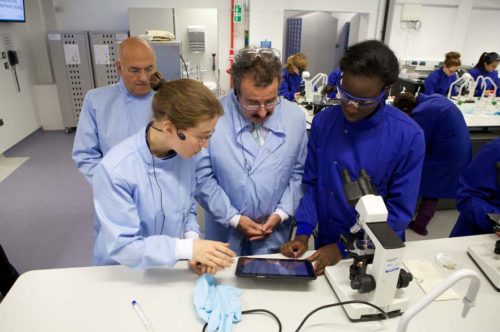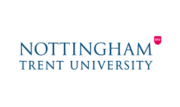Designed to provide you with a multidisciplinary approach to the study of the molecular biology of micro-organisms.
You’ll study the key concepts associated with molecular microbiology and use these when considering their role in health, disease and in the natural environment.
This course provides you with opportunities to study advanced principles of the metabolism and genetics of microbes, microbes involved in clinical health and the natural environment and infectious diseases. Further studies specialise in modern genomics and infectious disease diagnosis. Practical work forms a large proportion of your learning to ensure that you have extensive skills for employment or research and there is an emphasis on developing knowledge and understanding such that you acquire the skills, qualities and attributes expected by employers or for postgraduate research.
Careers and employability
There are a wide range of career opportunities within microbiology. You will work with leading academics on your course, so you will have gained important academic and professional skills necessary to help you obtain employment in this field. At the end of the course, you will also have developed many transferable skills that will make you more attractive to potential employers in related areas of molecular bioscience and microbiology.
The Research Project and/or Placement will give you the skills you need to follow a career in research and development.
Skills portfolio
You will gather together relevant practical skills throughout laboratory classes producing a training record. This can be presented to potential employers as proof of competence in a laboratory setting. It also provides you with experience of managing what is essentially a personal development portfolio, which is now a standard tool for monitoring progression and performance in a scientific career as well as out in the sector.
Employability Team
The University’s Employability Team has an enviable reputation for helping our graduates find employment and offers individual consultations. Sessions are available to all students at NTU on CV writing and interview technique.The Sandwich-route course offers you the opportunity to take a one-year placement or several smaller placements. If you start your this course in September/October then you will complete your placement following your taught modules and research project. If you start in January you will complete one term of taught modules and your project then go one placement before returning to NTU for your final term of modules.
Postgraduate Diploma in Professional Practice
To qualify for the additional qualification of Postgraduate Diploma in Professional Practice (PGDIPP) you must submit a work placement portfolio which includes a placement diary, reflective report and updated CV, as well as deliver an oral presentation on your placement experience.
Help and support
We will work closely with you to help you strengthen your CV and interview techniques. During the placement year, an academic member of staff will visit at least twice to check on your progress and offer any advice.




















